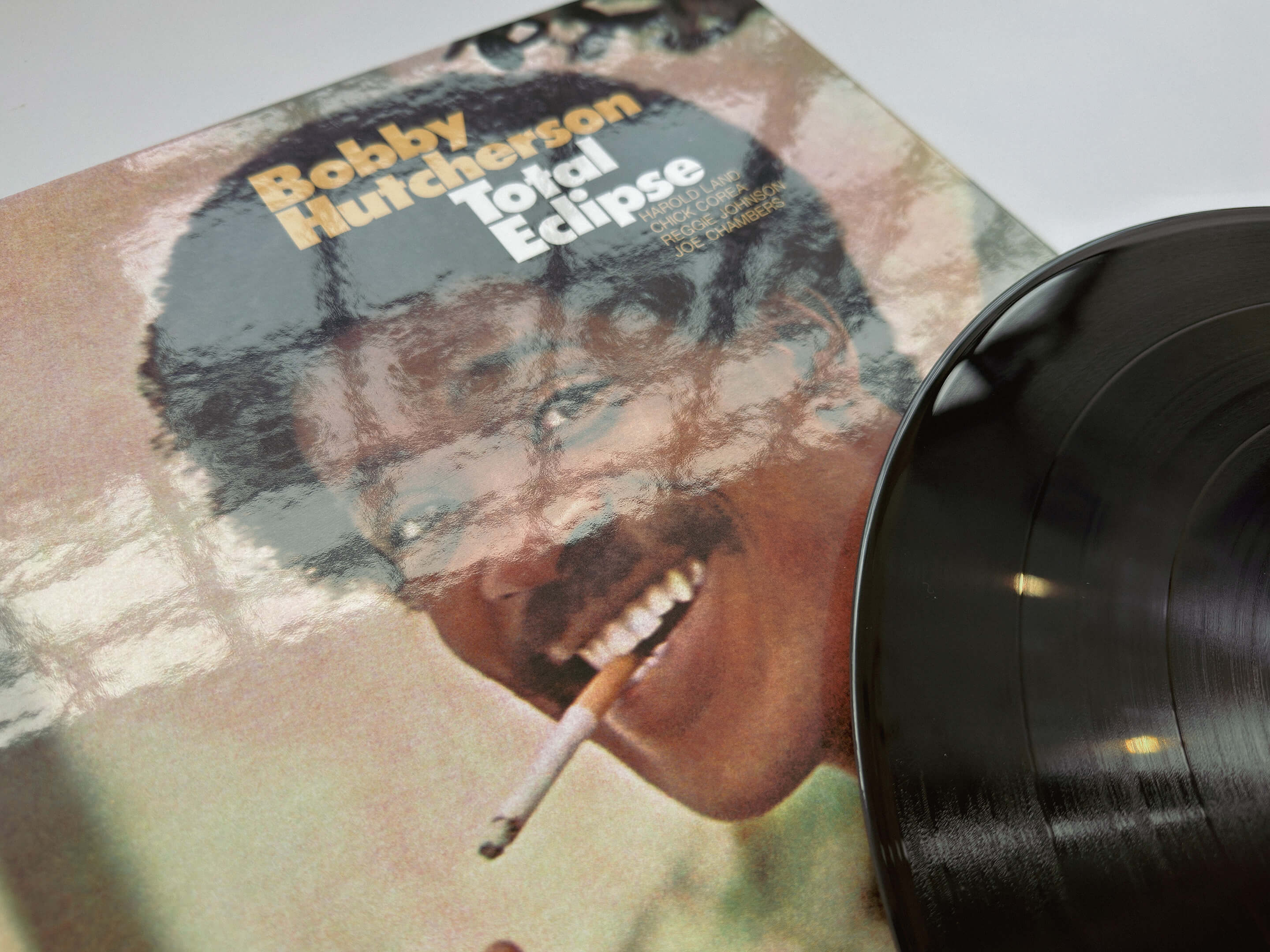Full of slow-burning emotional arcs against dazzling speed and dexterity, 1969’s Total Eclipse is cosmic stuff.
Following on from Chico Hamilton’s The Dealer, you could rightly consider that Sunday Classic has become concerned with jazz greats smoking on the sleeve, but we had actually been meaning to write about the vibe man Bobby Hutcherson for quite a while, and ahead of the reissue of Montara, we have picked Total Eclipse as a sublime jump off point in an amazing discography.
Recorded at Plaza Sound Studios in New York City, Total Eclipse marked the start of a seven album run for Blue Note that would feature the creative partnership between Hutcherson and saxophonist Harold Land. The two had first worked together on Land’s 1968 LP The Peace-Maker for the Cadet label, a largely underground release that has only grown in reputation over the years. Land’s soulful improvisations really do work beautifully with Hutcherson’s spacious and transcendental floats on vibraphones and marimbas. The quintet also features pianist Chick Corea (who wrote the album’s gorgeous and uptempo centerpoint Matrix) and a rhythm section of Reggie Johnson on bass and Joe Chambers on drums, who would both work on many of Hutcherson’s albums over the following decade.
The album swings to life with the brisk Herzog, full of light energy and complex and knotty changes, and although Land and Corea both rip through impressive solos, it is Hutcherson’s speed and dexterity that really stands out. The album’s titular track is especially atmospheric, ebbing and flowing towards the ten minute mark. The pace of Matrix really does dazzle, with Johnson and Chambers both moving away from anchoring the groove to skip through a serious workout. Land’s screaming solo is pretty vital stuff. Same Shame is full of pensive energy, another of the album’s hugely ambitious ten minute odysseys. The album closer Pompeian is a proper treat, starting with a playful energy that sounds more like Vince Guaraldi’s Peanuts music, before progressing into expansive and avant-leaning waltzes. A trip.
Total Eclipse stands as a bridge between Hutcherson's early avant-garde explorations and a more structured but equally compelling post-bop sound. A nexus of brooding soul, innovation and emotional resonance.
When it floats, it really floats.





